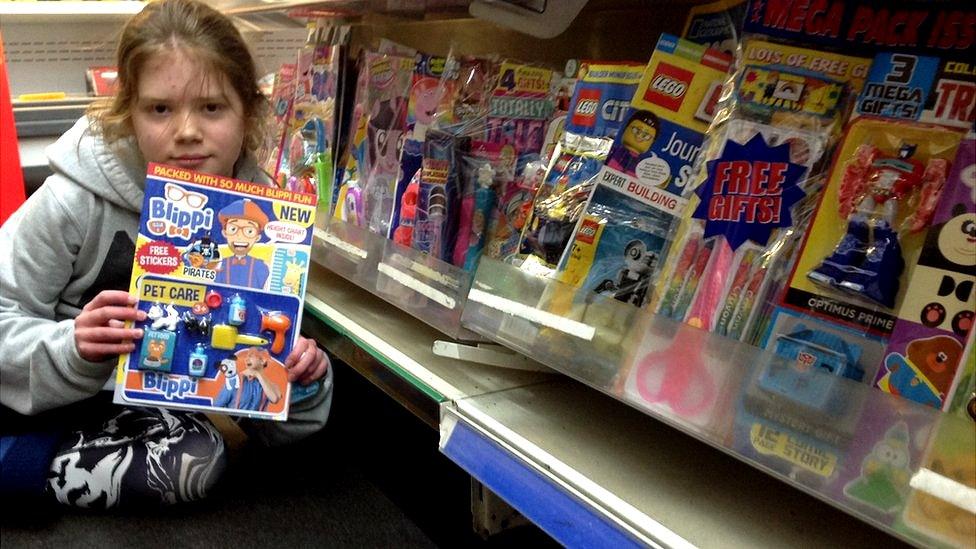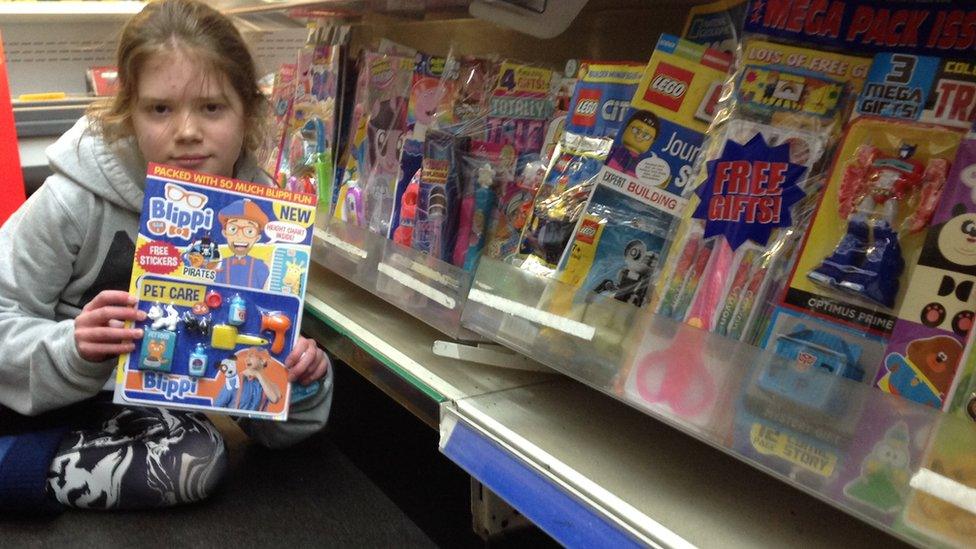Waitrose ditches magazines with disposable plastic toys
- Published

Waitrose said the change was inspired by a campaign by 10-year-old Skye from Gwynedd.
Waitrose has said it will no longer sell children's magazines with plastic disposable toys to help tackle pollution.
The retailer said the free plastic toys have a short lifespan and cannot easily be recycled.
This comes amid calls from some of the children they are aimed at to stop giving away free plastic toys.
Over the next eight weeks, it will be removing magazines containing the free toys from its shelves.
Waitrose is urging publishers to replace "pointless plastic" with sustainable alternatives.
It said the move was inspired by Skye, a 10-year-old from Gwynedd, who launched a campaign to persuade publishers to stop giving away the disposable toys in magazines.
"I'm really pleased so many people have agreed with me and supported my petition - I want to thank everyone who has signed and shared my campaign to ban plastics from comics and magazines," Skye told the BBC.
"Thank you to Waitrose for agreeing with us and no longer selling the unwanted plastic tat.
"I hope all retailers can do the same and then the publishers will realise this is not acceptable anymore. We really like the magazines - we just don't want or need the plastic packaging or the cheap plastic toys."
The ban will not include educational or reusable craft items which are designed to be used multiple times, such as colouring pens and pencils, and collectable models.
'Unnecessary plastic'
Marija Rompani, partner and director of sustainability and ethics at Waitrose, said: "While we know these magazines are popular with children, some of the unnecessary plastic attached to them has become really excessive.
In 2019, Ella (left) and Caitlin McEwan said they were "amazed" by Burger King's decision to stop including plastic toys in their children's meals
"Many in the younger generation really care about the planet and are the ones inheriting the problem of plastic pollution.
"We urge publishers to find alternatives, and other retailers to follow our lead in ending the pointless plastic that comes with children's magazines."
The retailer has written to magazine distributors giving them eight weeks' notice of the policy, asking for alternatives to plastic toys and warning that they will not sell copies which contain the disposable items.
It is the latest move by the supermarket to cut down on single-use plastic, which has also seen it end the sale of Christmas crackers with plastic toys or glitter, and has a push to make all its own-label packaging recycled, reusable or home compostable.
Children's plastics campaign's have been successful in the past. In 2019, Burger King stopped including plastic toys in their children's meals and McDonald's gave children options of books with Happy Meals, after a campaign by two sisters.
Related topics
- Published13 March 2021
